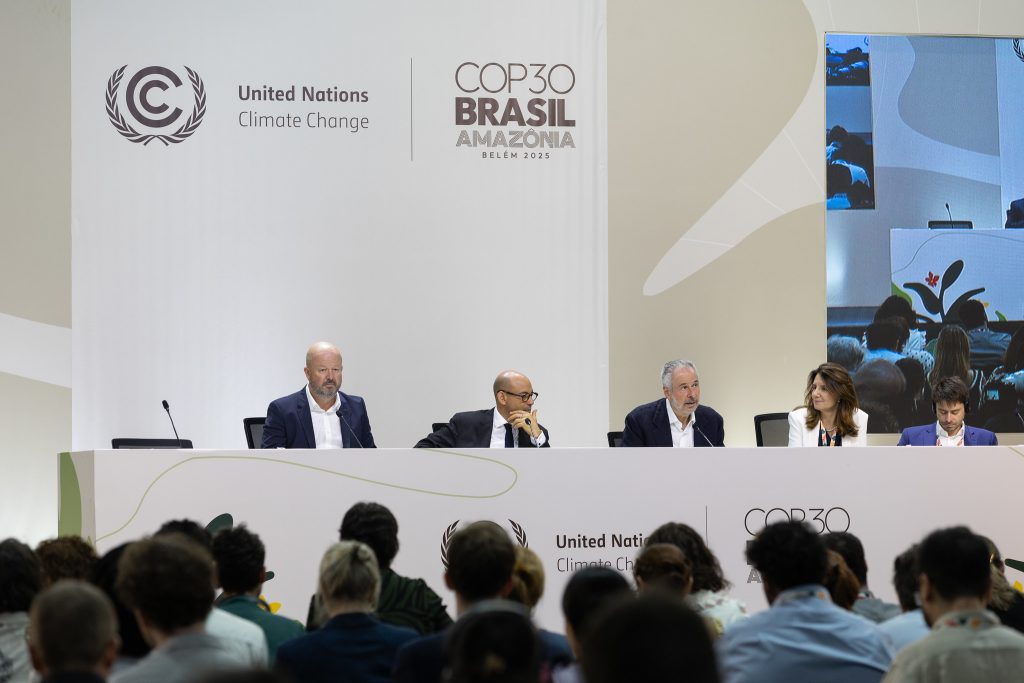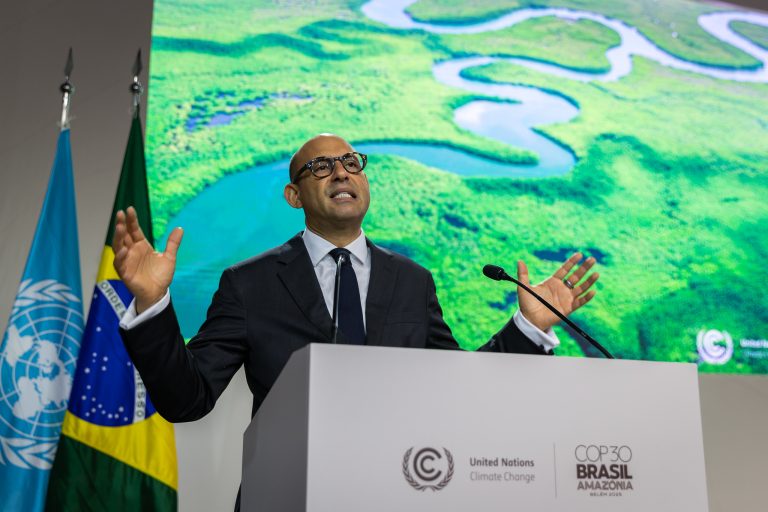
Jakarta — COP30 opened in the Amazonian city of Belém on Monday, November 10, with Brazil’s President Luiz Inácio Lula da Silva renewing his call for a global plan to move beyond fossil fuels, framing COP30 as a decisive moment to confront widening emissions gaps and secure climate finance.
President Lula brought urgent appeals from vulnerable nations to put climate impacts and adaptation at the centre of negotiations. Belém, he declared, would serve as the “capital of the world” for the next two weeks as governments, mayors, Indigenous leaders, civil society groups and businesses race to close the gap on national climate commitments (NDCs), scale adaptation finance, and unlock investment in forests and nature.
COP30 President André Corrêa do Lago lauded Lula’s speech as “amazing” and underscored the symbolic power of opening the summit with Indigenous singers and prominent cultural figures. “It’s great to have the Head of State so committed to this COP,” he said.
Agenda adopted: A rare early win
Negotiators adopted the COP30 agenda late Sunday night, avoiding the procedural deadlocks that have stalled previous COPs. “This agreement… is not only going to allow us to start working today very intensively, but also explain to the world why these additional issues matter,” said Corrêa do Lago.
Delegates arrived in Belém as memories of recent climate disasters remained fresh: Typhoon Fung Wong in the Philippines and Hurricane Melissa, which ravaged Jamaica.
Representatives from climate-vulnerable nations insisted that real-world impacts must shape negotiations over the next two weeks.
“Within a day of Melissa’s passing, Jamaica became the world’s symbol of climate devastation,” former Jamaican negotiator UnaMay Gordon said in a press conference. “Belém needs to prove to the world that it is a symbol of climate action.”
UN Climate Change Executive Secretary Simon Stiell reinforced the point, warning that the “costs of delay are skyrocketing” as climate extremes intensify. “Global heating is already dealing some devastating blows in every country,” he said.
LDCs urge tripling of adaptation finance
Marking a decade since the Paris Agreement, the Least Developed Countries (LDC) Group called for renewed ambition and delivery. LDC Chair Evans Njewa urged leaders to triple grant-based adaptation finance by 2030 and agree on stronger 2030 and 2035 emission-reduction targets. The group also called for fast-tracking finance to implement National Adaptation Plans, arguing that progress on adaptation remains dangerously behind pace. “The world must not allow the 1.5°C goal to slip away,” Njewa said.
The UNFCCC released an updated analysis of national climate pledges after China, the EU, and others submitted new NDCs in recent days. The numbers show that global emissions are now projected to fall 12% by 2035—an improvement Stiell called “a big deal.”
“Every fraction of a degree of heating avoided will save millions of lives and billions of dollars in climate damage,” he said, noting that clean-energy trends are accelerating as renewable energy becomes cheaper than 90% of fossil fuels.
Still, the gap between what countries have pledged and what is needed to limit warming to 1.5°C remains substantial. Wednesday’s stocktake will put the NDC ambition shortfall “squarely” before negotiators, Stiell said, pressing countries to “hit the accelerator for people, prosperity, and the planet.” (nsh)
Banner photo: UN Climate Change Executive Secretary Simon Stiell speaks during the Opening of the 30th Conference of the Parties to the United Nations Framework Convention on Climate Change (COP30) in the Brazilian Amazon (Photo: © UN Climate Change – Kiara Worth)















